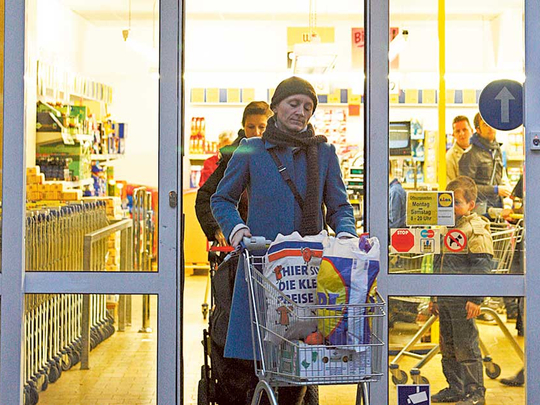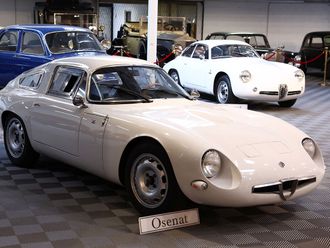
Frankfurt: Shoppers strolling down Hamburg’s swanky Neuer Wall pass by Louis Vuitton, Gucci and Hermes boutiques. Next to the Ferragamo outlet, one occupant might give them pause: discounter Lidl.
The German grocer, better known for €6.99 ($7.86) bottles of Chablis and €2-quiche Lorraine, has accelerated its upscale move with a “pop-up” fashion store on Hamburg’s most expensive shopping street. The unit opened on September 8 and was gone by September 11, although its styles will soon migrate to Lidl’s grocery shops. Debates among shoppers and clerks about its place beside more genteel neighbours will also linger.
“You can’t imagine how many of the well-off people in my golf club are doing bargain-hunting, like I just did here,” said club secretary Gesa Molinas after spending €83 on five items including a cashmere sweater and €9.99 turtleneck.
By rubbing shoulders with big luxury brands, Lidl is seeking to show it has moved beyond the pile-it-high, sell-it-cheap tactics for which it is best known. Along with main rival Aldi, the budget chain is accelerating a drive into fashion, compounding difficulties for traditional textile companies which have ceded about 40 per cent of Germany’s clothes market to online shops, according to credit insurer Euler Hermes.
“If they keep doing these kind of PR stunts and manage to grab people’s attention, this could really be a reason to get scared for fashion companies,” said Sven-Holger Undritz, a corporate lawyer who dropped by during his lunch break after reading about the store in the newspapers.
On a recent weekday afternoon, women combed for bargains in the sunlit two-storey corner store sandwiched between the Italian Salvatore Ferragamo boutique that sells $1,290 turtlenecks and Louis Vuitton three buildings away. The retailer’s familiar yellow, blue and red logo is barely noticeable, tucked in a corner of signs outside the store.
The unit showcases the retailer’s Esmara Premium line of women’s clothes and accessories, including scarves for 6 euros, dresses for €10, and the top seller, a cashmere sweater for €50.
Fashion is the latest battleground for the discounters, who are swiping grocery share across Europe and have widened assortment and brightened their stores to compete with more upmarket rivals Rewe Group and Edeka AG in the bruising German foodstuffs market.
“The trend is the discounters are going more upmarket,” said Bianca Casertano, an analyst at Planet Retail in Frankfurt. “Most of it was related to food and now they’re doing the same for fashion.”
Aldi has been following a similar playbook. Aldi Sued, which operates in southern Germany, this year began selling clothes designed by Jette Joop, daughter of designer Wolfgang Joop. It’s also advertised its Expressi coffee capsules with Italian actress Elisabetta Canalis.
Buffing their brands can help the discounters as it gets harder to open new stores in a crowded market, Casertano said. For Germany’s established clothiers, encroachment by the discounters may cause more distress. A recent flurry of insolvencies has included luxury fashion maker Strenesse and SinnLeffers, a unit of German department store chain Woehrl.
“We believe that other textile companies will also run into problems,” said Ron van het Hof, CEO for Euler Hermes in Germany, Austria and Switzerland.
While Lidl managed to gain broad media coverage of its “first-time experiment”, it has no immediate plans for any further openings, a spokeswoman said.
Not every merchant on Neuer Wall was thrilled with their new neighbour. Most prefer an air-conditioned atmosphere with soft-spoken shopkeepers and security men in black suits. A clerk at an Italian designer store, who asked not to be named, tut-tutted Lidl’s potential to tarnish the shopping street’s luxury image.
That hasn’t dissuaded German shoppers, who historically love a deal. Said Solmaz Maurus, a nurse visiting from Mannheim: “Where else do you get cashmere sweaters for €49?”












